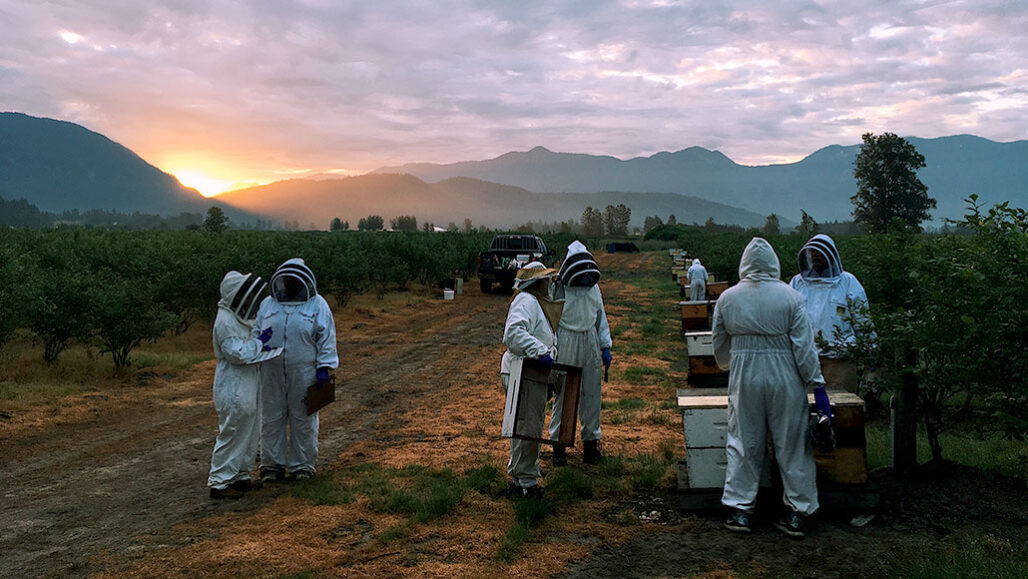Questions for “Learning what stresses queen bees could save their hives”

Researchers from the University of British Columbia collect bees from an apiary to study how healthy they are. Apiaries are collections of human-made beehives. Part of a farm, bees from this particular apiary pollinate local blueberry plants.
Abigail Chapman